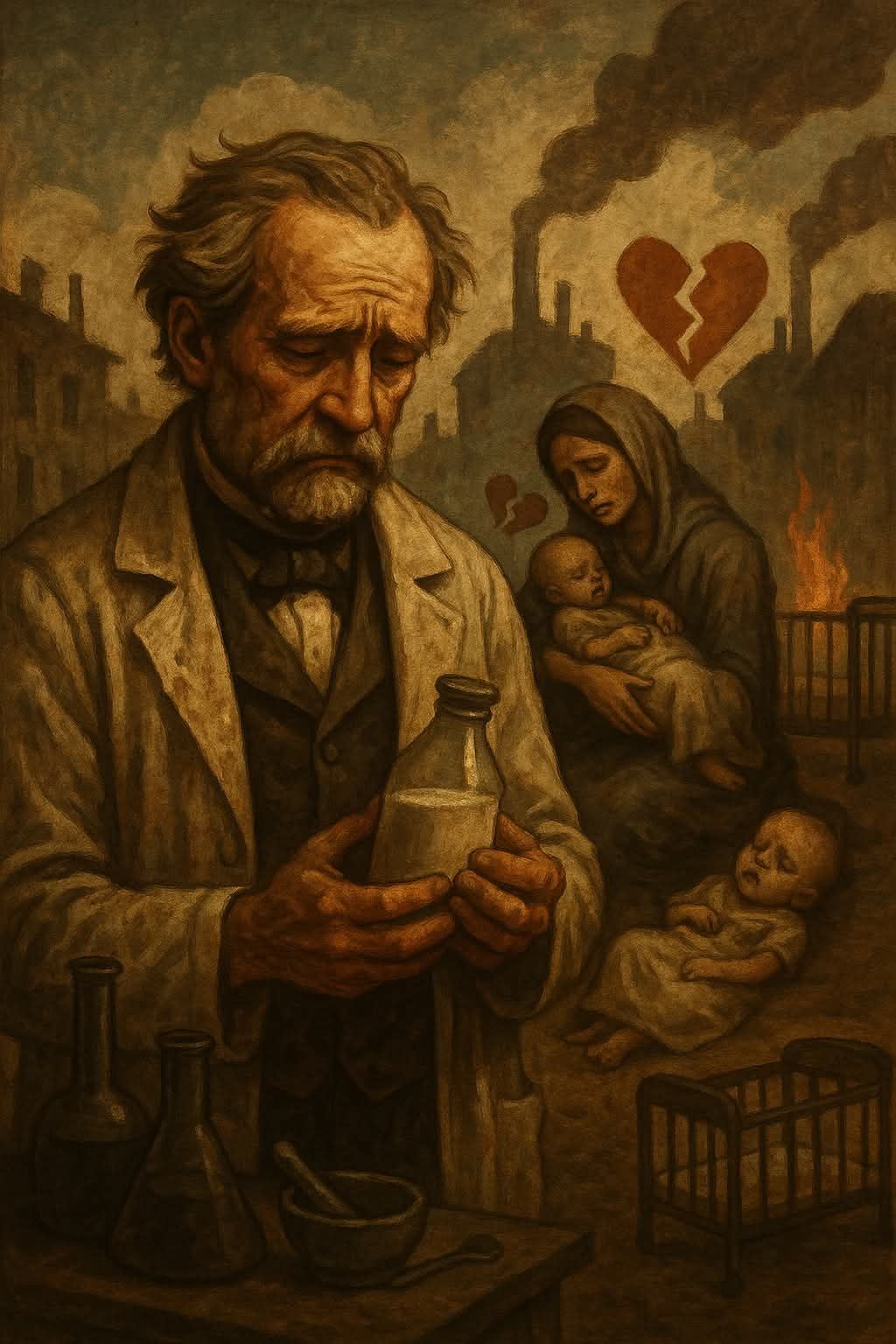« Reply #86 on: July 06, 2025, 06:22:45 PM »

Before anyone ever tasted what I invented, my life was a series of failures. I was born in Germany and moved to Switzerland chasing any chance life might offer. I never finished pharmacy school. I was broke. By 25, I felt like a failure. I lived in a rented room, worked in other people’s labs, and couldn’t even afford a proper lab coat. 🧪
But what truly shattered me was seeing my neighbors’ babies die of malnutrition—tiny lives fading away because they couldn’t digest breast milk. That’s when I said: This can’t go on. I began experimenting. And failed. Over and over. Some formulas made children vomit. Others had no nutrients at all. People mocked me. Said I was crazy. Told me to give up. 👶💔
Then one desperate mother begged me to try to save her premature baby—he couldn’t eat anything, and doctors had given up. I gave him a formula I’d been refining: cow’s milk, wheat, and sugar. The baby survived. That moment changed everything. It was the birth of the first infant formula in history. 🚼
No, I didn’t get rich overnight. I fought through medical skepticism, legal barriers, resource shortages, and ruthless competitors. But now I had a purpose: not just to sell food, but to save lives. 💥
“Sometimes, the pain you witness in others becomes the spark to rewrite your own story.”
“Don’t look away from suffering—use it as fuel. Because when you help others live, your own life gains meaning.” 🙌
— Henri Nestlé
« Last Edit: July 06, 2025, 06:25:49 PM by MysteRy »

Logged